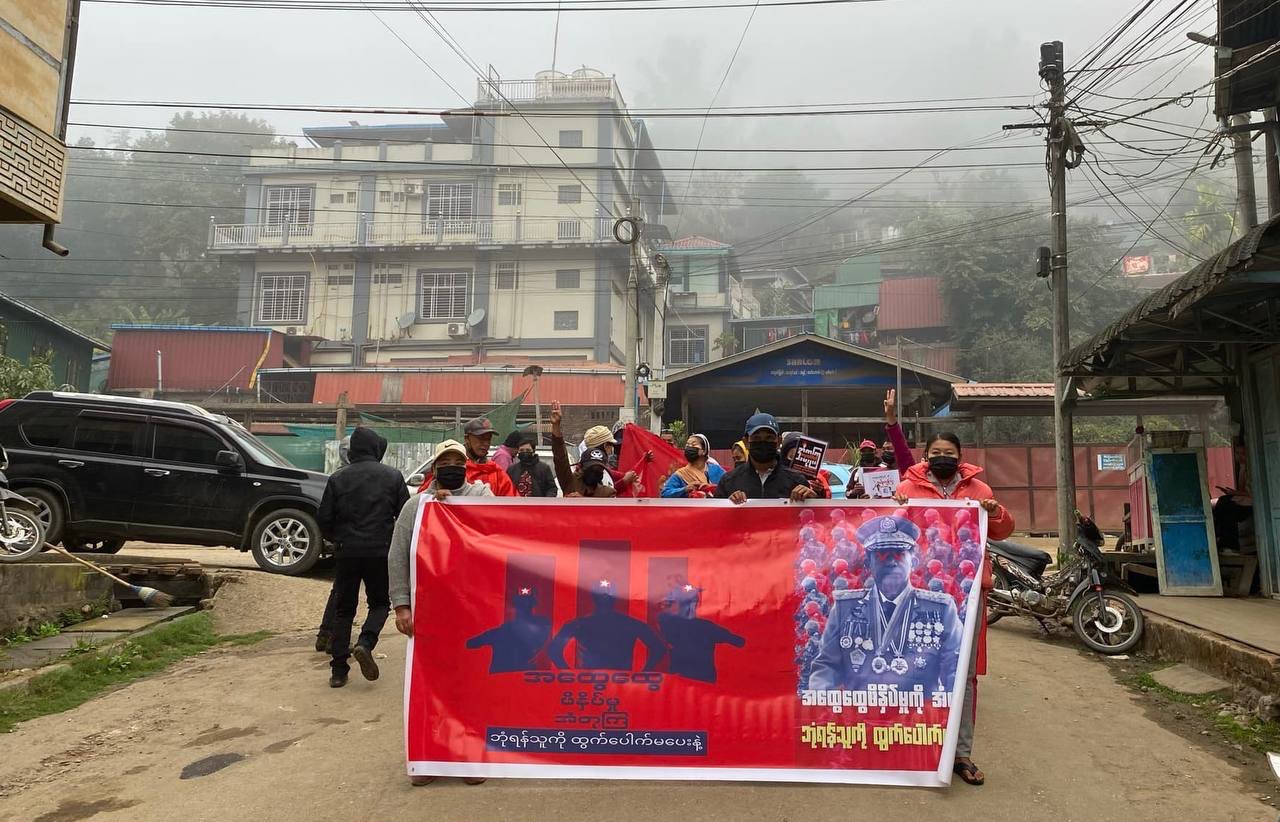Four years in the dark: Myanmar’s dead-end war
Myanmar’s military regime has extended the state of emergency again, but its control over the country is faltering as ethnic militias and resistance forces now control 95 cities. Meanwhile, the UN is reporting war crimes, highlighting the imminent risk of famine. China is involved with ethnic militias, but backs the generals.
Yangon (AsiaNews) – Myanmar’s military regime yesterday extended the state of emergency for another six months, prolonging a civil war that began with a military coup four years ago.
This comes as ethnic militias and other resistance forces, the People’s Defence Forces (PDF), have seized large swathes of land, especially along the borders, while the military is hanging on to only 21 per cent of the territory, i.e. the most densely populated areas and some key cities.
According to the Myanmar Peace Monitor, 95 cities across the country are under resistance control, which has already established new local administrations in some cases, redrawn along ethnic lines of the groups fighting the military junta.
The generals yesterday also reiterated their intention to hold elections by the end of the year, stressing, however, that the conditions for a free and democratic vote do not yet exist.
According to analysts, elections held by the junta will never really be free, but rather represent an attempt by the military to consolidate its power at a time of extreme weakness. If a vote were to take place, it would likely be the result of further violence.
So far, China remains the junta’s main supporter, and has backed the idea of holding elections, even if they are only a smoke screen, while maintaining relations with ethnic militias.
Beijing-brokered ceasefire attempts have so far not stood the test of time, because Chinese support for the junta is dictated solely by strategic and business interests. Myanmar is home to crucial infrastructure for the Belt and Road Initiative.
In recent weeks, Beijing has acted more decisively, above all to protect its own citizens who are victims of online scam hubs that have proliferated along the border with Thailand.
Over the past four years, the military regime has committed serious crimes against the civilian population, the UN Independent Investigative Mechanism for Myanmar (IIMM) has reported, stressing that widespread impunity continues to fuel violence.
“Increasingly frequent and indiscriminate air strikes, artillery and drone attacks have killed civilians, driven survivors from their homes, and destroyed hospitals, schools and places of worship,” the international body says in a statement, noting that ethnic militias have also been responsible for serious abuses, including rape, murder and torture.
The United Nations, in a recent report on the situation in Myanmar four years after the coup, describes the country as the victim of a "polycrisis", an unprecedented multidimensional crisis.
This year promises to be an even more difficult year. Almost half of the population now lives below the poverty line and 3.5 million people are displaced without access to essential services.
Since 2020, the gross domestic product contracted by 9 per cent, while the currency has collapsed to such an extent that imports have become unsustainable, with inflation running at 25 per cent, erasing the economic progress made in the decade before the coup.
In some regions, the price of rice has increased by 47 per cent.
In Rakhine State the situation is particularly critical, as resistance forces successfully seized most of the entire territory after fierce fighting with the army. Local food production is expected to cover just 20 per cent of the state’s needs, exposing people to the risk of acute famine.
28/07/2023 18:15
28/03/2024 21:00
12/02/2024 17:16
13/10/2022 14:26







.png)










